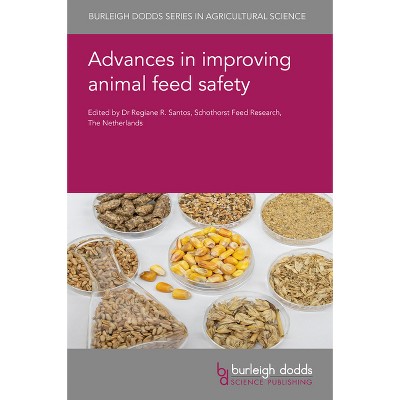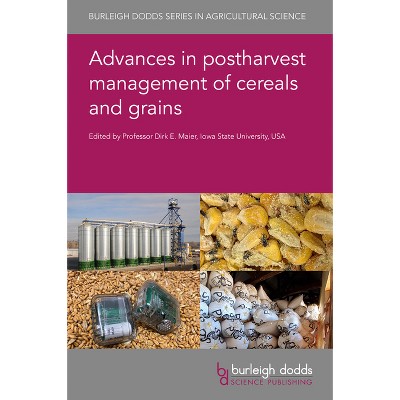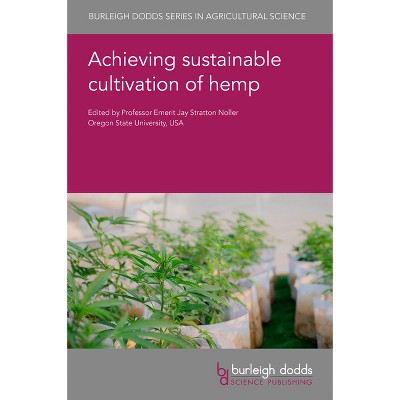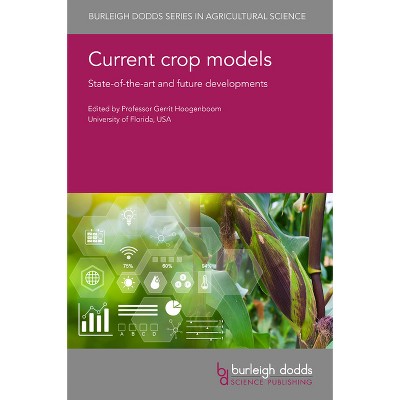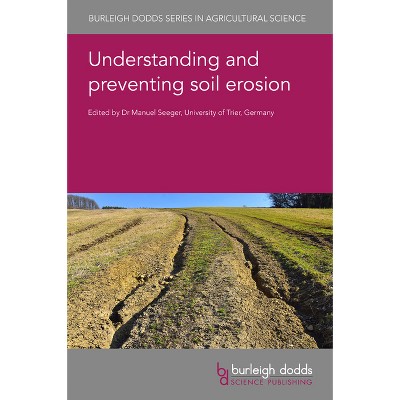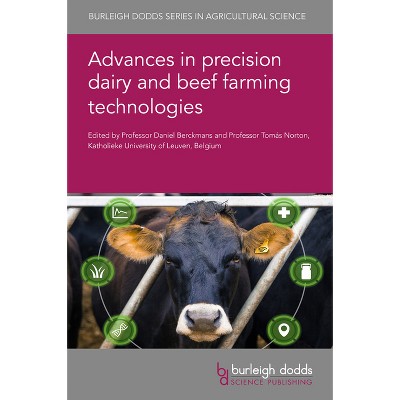Sponsored

Improving the Processing Quality of Wheat - (Burleigh Dodds Agricultural Science) by Kurt A Rosentrater (Hardcover)
Pre-order
Sponsored
About this item
Highlights
- Wheat is the most widely cultivated crop in the world and plays a crucial role in feeding a growing population.
- About the Author: Dr Kurt A. Rosentrater is a Professor in the Departments of Agricultural and Biosystems Engineering and Food Science and Human Nutrition at Iowa State University, USA.
- 500 Pages
- Technology, Agriculture
- Series Name: Burleigh Dodds Agricultural Science
Description
About the Book
This book reviews the wealth of research on how key components of wheat grains can affect the subsequent processing and sensory quality of the harvested product. The book also discusses recent advances in measuring wheat quality characteristics and how grain quality can be optimised for a range of different end products.
Book Synopsis
Wheat is the most widely cultivated crop in the world and plays a crucial role in feeding a growing population. For example, wheat grains and flour are staple ingredients in a range of processed products such as bread, pasta and pastry which are consumed by millions on a daily basis. However, as consumer expectations on product quality continue to rise, farmers face even more pressure from food manufacturers to ensure that grain quality is optimised from cultivation through to harvest.
Improving the processing quality of wheat provides a comprehensive overview of the key components that can affect the processing and sensory quality of wheat, such as the composition and concentration of proteins, lipids and non-starch polysaccharides. The book also reviews the range of analytical techniques used to measure wheat quality characteristics, including high-performance liquid chromatography and near-infrared reflectance, as well as recent developments in ensuring the safety of wheat products.From the Back Cover
Wheat is the most widely cultivated crop in the world and plays a crucial role in feeding a growing population. For example, wheat grains and flour are staple ingredients in a range of processed products such as bread, pasta and pastry which are consumed by millions on a daily basis. However, as consumer expectations on product quality continue to rise, farmers face even more pressure from food manufacturers to ensure that grain quality is optimised from cultivation through to harvest.
Improving the processing quality of wheat provides a comprehensive overview of the key components that can affect the processing and sensory quality of wheat, such as the composition and concentration of proteins, lipids and non-starch polysaccharides. The book also reviews the range of analytical techniques used to measure wheat quality characteristics, including high-performance liquid chromatography and near-infrared reflectance, as well as recent developments in ensuring the safety of wheat products. Edited by a world-renowned expert, the book will be a standard reference for university and other researchers in cereal science, arable farmers, food manufacturers and processors involved in the supply of cereal-based products, as well as government and other private sector agencies supporting sustainable cereal crop production. Dr Kurt A. Rosentrater is a Professor in the Departments of Agricultural and Biosystems Engineering and Food Science and Human Nutrition at Iowa State University, USA. He is also a Visiting Professor in the Department of Grain Science and Industry at Kansas State University, Polytech Montpellier and ISARA-Lyon, France, where he teaches storage, processing and sustainability of grain and food systems. Professor Rosentrater has published three books and several hundred conference and journal papers on a variety of cereal grain topics.About the Author
Dr Kurt A. Rosentrater is a Professor in the Departments of Agricultural and Biosystems Engineering and Food Science and Human Nutrition at Iowa State University, USA. He is also a Visiting Professor in the Department of Grain Science and Industry at Kansas State University, Polytech Montpellier and ISARA-Lyon, France, where he teaches storage, processing and sustainability of grain and food systems. Professor Rosentrater has published three books and several hundred conference and journal papers on a variety of cereal grain topics.
Shipping details
Return details
Trending Book Pre-Orders






